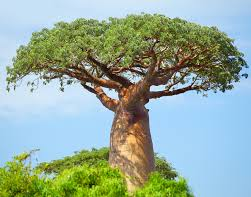What of Historicity and History-Cities?
- By kwende ukaidi
- •
- 19 Oct, 2023
- •
Celebrating the Great Afrikan History Continuum

The primary
people of creation have etched into the annals of their history continuum superlative
feats of excellence. These stand as eternal sources informative reference and
empowerment for each Afrikan generation to build with and upon. Indeed, in
their natural norm of continual upright ascension, each present generation
builds, develops and grows in the same fervour of brilliancy in furtherance of
that which was self-determined before. Such quality is of course substantial ingredient
in the establishment the greatest and most enduring civilisations ever to exist
(as evidently built by these souls). The truism of this soul people’s work
throughout the ages is undeniable even with a cursory examination of real
historical detail. Further, embedded within the fabric of their way since the
earliest of times are the lived values of truth and rightfulness Thus,
construction reflects their value substance and the recall or knowingness of
their experience also reflects their lived values. For example, Afrikan souls built cities that served wider nationhood excellently.
In the contemporary era, the term historicity has been used to describe the actual realities of past experience. A contemporary source highlights the following:
“Historicity is the historical actuality of persons and events, meaning the quality of being part of history instead of being a historical myth, legend or fiction. The historicity of a claim about the past is its factual status. Historicity denotes historical actuality, authenticity, factuality and focuses on the true value of knowledge claims about the past”.
Historicity as a focussed way to describe historical actuality can have its merits. However, within a state of interruption and disruption, it can be telling for Afrikan souls if the term historicity is used to identify historical truism outside the radar of Afrikan of souls. The 'history' pushed and peddled by others for the Afrikan to consume may not hold historicity. Indeed, historicity can become a necessary qualifier for past experience reserved for those 'in the know'. In disruption, 'history' lacking historicity is pseudo-history. Any barrage of misinformation, information-denial or ring-fencing in relation to the Afrikan experience could then be packaged, pushed and peddled by others as 'the history' for soul people to consume. Meanwhile, historical realities can be preserved elsewhere with the descriptor of historicity accurately applied for the exclusive empowerment of others. The implication that 'history' can be made popular void of its historicity can point to acute conditions of disorder. Certainly, Afrikans contained in a state of historical deficit, denial or fallacy is a boon to others that mean the Afrikan ill.
If Afrikan souls disconnected from their history then they can be disconnected from historical reality then they don't have the grand examples of their city building excellence to inherit. Indeed, the current unfolding of Afrikan-city building of excellence in the now could be at a huge deficit. City building effort in a state of disruption may only reflect service to and the determinants of others. This pioneering people of excellence surely ought not neglect nor abandon themselves and real history as others attempt to secure historicity for themselves and away from the Afrikan.
Despite the challenges, Afrikan souls surely have their own duty and responsibility to recall their history for themselves and to continue to make history for themselves. This is part of the upright Afrikan way with all of the empowering facets and natural impetus to continually and optimally build that comes with this. The Afrikan history continuum is replete with grand civilisations reflecting highly civilised Afrikan life. The Afrikan connection to their history continuum is lived and intimate and naturally steeped in the truth of themselves.
So, each soul can take a step of empowering progress to restore knowingness of their history in all of its reality from whatever station, level or status. At the same time, souls can do themselves a great service in safeguarding against contaminants of ill, self-destructive wrongdoing and the like.
For this primary and highly pragmatic people of creation the norm of their history recall is a matter of civilisation. Surely then, the making of their history in the now ought to be a matter of their civilisation. if so, historicity may not be then be required as a focal identifier as Afrikan souls recall their historical cities of upright grandeur and build historical cities of upright grandeur now and tomorrow. Here reality can surely speak for itself. Only this people can bring their living history of rightful order to the fore. Civilisation is not of happenstance.
The Universal Royal Afrikan Nation (URAN) is an Afrikan-centred spiritual and cultural mission for ascendancy that embodies living spiritually and culturally rooted life. To find out more about URAN and its spiritual-cultural mission for liberty and nationhood click here. The exquisite URAN pendant can be obtained online by clicking here.
In his capacity as an Afrikan-centred spiritual cultural practitioner this author is available for further learning in this regard and also for the carrying out of ceremonies such as naming and name reclamation. For details please click here.
Afrikan World Studies programmes are important forms of study in understanding the Afrikan experience. There are a range of subjects covered on these programmes including History, Creative Production, Psychology and Religion. To find out more about these learning programmes please click here. For the video promo for these learning programmes click here.
At nominal cost, also consider acquisition of an a4 laminate poster of articulations by this author when visiting the Yemanja-O establishment to enrol, consult, learn, gather or otherwise.
Also, visit www.u-ran.org for links to Afrikan liberation Love radio programme on Universal Royal Afrikan Radio online.
